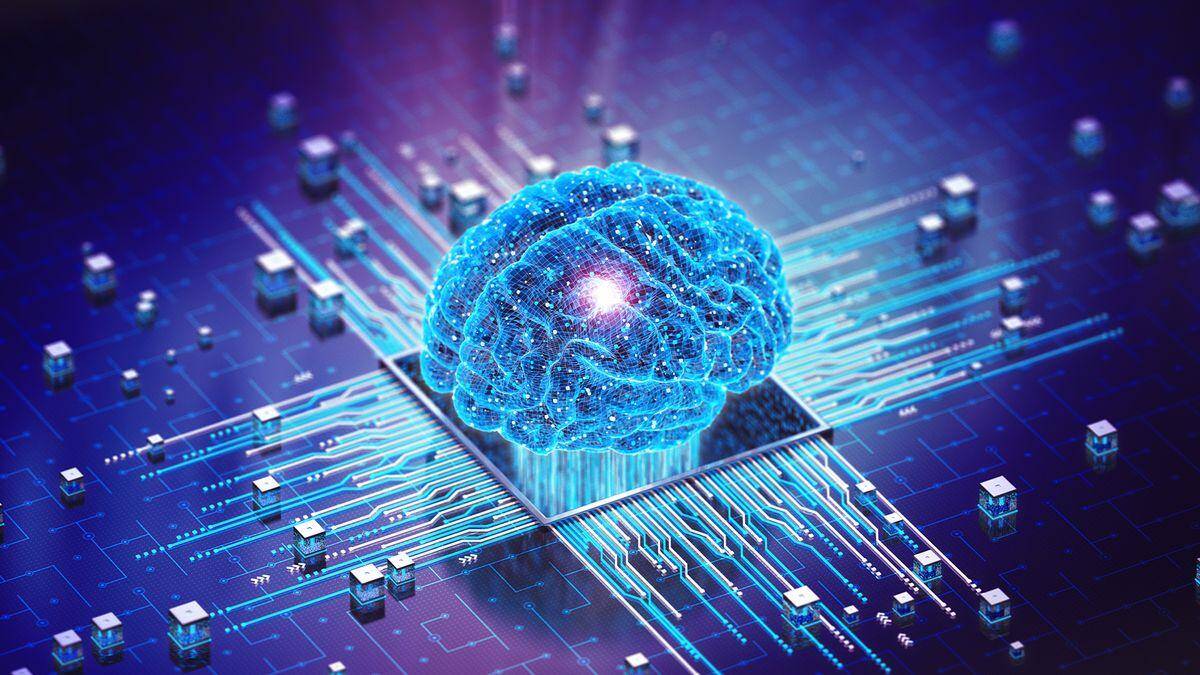Navigating the Future: AI’s Role in Website Directories
In an ever-evolving digital landscape, where data is just a click away and trends shift at the speed of light, the way we search for and interact with online resources is undergoing a profound transformation. Enter the realm of website directories—a curated collection of links designed to help users find their way through the vast expanse of the internet. As we stand on the brink of a new era, artificial intelligence emerges as a guiding compass, poised to enhance the utility and accessibility of these directories. From intelligent categorization to personalized recommendations, AI is not just reshaping the functionality of website directories; it is indeed redefining the very essence of how we discover and engage with the online world. As we delve deeper into this topic, we will explore the innovative applications of AI in website directories, shedding light on the benefits, challenges, and future possibilities of this technology-driven evolution.
Table of Contents
Harnessing AI for Enhanced User Experience in Website Directories
As the digital landscape evolves, the integration of artificial intelligence into website directories paves the way for a more personalized and efficient user experience. By leveraging machine learning and natural language processing, AI can analyze user behavior and preferences, allowing directories to curate content that resonates deeply with distinct audiences.As an example,advanced algorithms can process large volumes of data to understand user intent,subsequently suggesting websites,services,or products that align with individual needs.This level of customization fosters engagement,increasing the likelihood that users will return to the directory for future needs.
Moreover, AI enhances search functionalities, making the navigation of website directories not just easier but also smarter.Intelligent search features can be implemented to ensure that results are contextually relevant and prioritized based on various parameters such as location, trends, and user ratings. Consider the advantages AI brings to this aspect:
- Real-time updates: AI systems can instantly reflect changes in listings, keeping the information current and reliable.
- Voice search capability: Users can interact with directories through voice commands, making the search process seamless and intuitive.
- Sentiment analysis: By analyzing user reviews, AI can gauge the overall satisfaction of services listed in the directory, guiding users toward the best options.
Here’s a swift overview highlighting the core advantages of adopting AI in website directories:
| Feature |
Benefits |
| Personalization |
Tailored suggestions based on user profiles and behavior. |
| Enhanced Search |
Quick, context-aware results that improve user satisfaction. |
| Data Insights |
Valuable analytics for businesses to optimize their presence. |
The Evolution of Search Algorithms: AIs Impact on Directory Navigation
As search algorithms have evolved, they have increasingly integrated advanced AI technologies, revolutionizing how we navigate website directories. Traditional keyword-based searches have evolved into refined semantic understanding, enabling search engines to discern user intent more accurately. This shift not only enhances the accuracy of search results but also personalizes the user experience. Natural Language Processing (NLP), a subset of AI, allows systems to interpret queries in a conversational manner, meaning users can now express their needs more freely and intuitively. With this transformation, directories are becoming increasingly user-friendly, facilitating seamless navigation through immense amounts of data—empowering users to find exactly what they need without wading through irrelevant links.AI’s impact also extends to predictive analytics, enhancing the capability of website directories to anticipate user needs and preferences. By analyzing past user behavior, search engines can recommend content or categories the user may find valuable, efficiently guiding them to relevant areas of a directory. This creates a more engaging experience, where the directory feels intuitive and tailored. Key advancements facilitated by AI include:
- Voice Search Optimization: Allowing users to navigate using voice commands.
- Visual Search: Enabling search through images rather of words.
- Contextual Recommendations: Suggesting content based on user engagement.
To illustrate these advancements, consider the following table that contrasts traditional search algorithms with modern AI-enhanced methods:
| Aspect |
Traditional Algorithms |
AI-Enhanced Algorithms |
| Understanding Queries |
Keyword matching |
Contextual Understanding |
| User Personalization |
Static Results |
Dynamic Recommendations |
| navigational Ease |
Linear Navigation |
Adaptive Navigation Paths |
Through these innovations, AI not only enhances the functionality of website directories but also shapes the overall landscape of how users interact with online content, paving the way for a more interconnected and responsive web experience.

Data-Driven Insights: How AI Can Personalize Directory Recommendations
Artificial intelligence has the remarkable ability to sift through vast amounts of data, enabling it to uncover patterns and preferences that may not be immediately apparent. By analyzing user behavior—such as search queries, clicks, and time spent on various pages—AI can create a nuanced profile of individual users. This personalized insight allows website directories to offer tailored recommendations that truly resonate with each visitor. As an example, when a user frequently explores content related to outdoor activities, the directory can highlight specific listings like hiking gear retailers or camping sites. Such targeted suggestions can enhance engagement, making the browsing experience not only more enjoyable but also more efficient.
Moreover, personalization doesn’t just stop at recognizing user interests; it can also dynamically adjust to shifts in preferences over time. Utilizing feedback loops, AI algorithms continuously refine their recommendations, ensuring that users receive the most relevant content.This adaptability is crucial in a fast-paced digital landscape where trends can change overnight.Key benefits of AI-driven personalization in directory recommendations include:
- Enhanced User Experience: Users find what they need faster.
- Increased Engagement: Personalized content encourages deeper exploration.
- Higher Conversion Rates: Tailored recommendations can lead to more purchases or sign-ups.
Future-Proofing Directories: Best Practices for Integrating AI Technologies
To ensure the longevity and relevance of website directories in the evolving landscape of AI technologies, adopting an agile approach is key. It’s important to begin by analyzing user behavior data to identify trends and preferences. This can inform not only the structure of the directory but also the types of AI features to implement. Furthermore, integrating machine learning algorithms can help personalize user experiences, making it easier for visitors to find relevant information swiftly. Regularly updating algorithms based on user feedback and interaction can also create a more intuitive interface, allowing directories to adapt dynamically to changes in preferences.
Additionally,leveraging natural language processing (NLP) can enhance search functionalities,making it possible for users to ask questions in everyday language.implementing AI chatbots can further streamline user interaction, assisting visitors in real-time. It’s also essential to prioritize data security and privacy as AI technologies gather and analyze user data.Here’s a concise overview of best practices to follow:
| Best Practice |
Description |
| User Data analysis |
Gather insights on user behavior to refine directory content. |
| Machine Learning Integration |
Utilize algorithms to tailor experiences and suggestions. |
| Natural Language Processing |
Allow users to search with conversational queries. |
| Chatbot Interaction |
Incorporate chatbots for immediate assistance. |
| Data Security |
Ensure user data is protected and complies with regulations. |
Q&A
Q&A: Navigating the Future: AI’s Role in Website directories
Q1: What is the current role of AI in website directories? A1: AI has become an integral part of website directories by automating processes such as data categorization, content optimization, and user personalization. it analyzes user behavior to recommend relevant directories, making the browsing experience more intuitive and tailored.
Q2: How does AI enhance user experience in website directories? A2: By leveraging machine learning algorithms, AI can understand user preferences and search patterns. This allows it to deliver highly customized results,streamline navigation,and even predict what users are likely to search for next,ultimately reducing the time it takes for users to find what they’re looking for.
Q3: Can you explain how AI improves the accuracy of directory listings? A3: AI algorithms scan and analyze vast amounts of data to verify the authenticity and relevance of directory listings. They can detect outdated or inaccurate information and suggest updates, ensuring that users have access to reliable resources. Furthermore, AI can aggregate data from user reviews and feedback, further refining the quality of listings.
Q4: what challenges do website directories face with the integration of AI? A4: While AI offers tremendous benefits, challenges include ensuring data privacy, managing biased algorithms, and maintaining human oversight. There’s also the risk of over-reliance on AI, where the human touch in curating content is diminished, perhaps alienating users looking for more personal interaction.
Q5: How might AI evolve in its role within website directories in the future? A5: As AI technology advances, we can expect even more sophisticated forms of analysis and interaction. Features like voice search integration, visual recognition capabilities, and hyper-personalization will likely become standard, allowing users to interact with directories in new and dynamic ways. Additionally, with the rise of decentralized data ownership, AI could help create more democratic directory systems.
Q6: What impact will AI have on the traditional business model of website directories? A6: The integration of AI could lead to a shift from traditional revenue models to more dynamic ones, where directories might offer subscription-based services or premium features powered by AI analytics. This change presents an opportunity for directories to provide enhanced value for users, fostering loyalty and continuous engagement.
Q7: Are there ethical considerations surrounding the use of AI in website directories? A7: Absolutely.The ethical considerations include ensuring fair representation, avoiding algorithmic bias, and being obvious about how user data is utilized. It’s crucial for directory providers to establish guidelines that prioritize ethical AI use while empowering users to make informed decisions regarding their privacy.
Q8: What can businesses do to stay ahead in the changing landscape of website directories influenced by AI? A8: Businesses should prioritize adopting AI tools that enhance their directory listings and user experience. Staying informed about AI advancements and investing in continual learning will help businesses adapt effectively. Collaboration with AI experts and engaging in user feedback can also provide valuable insights, allowing them to refine their approach in real-time.
Q9: How can consumers benefit from the advancements of AI in website directories? A9: Consumers stand to gain from more efficient search capabilities, curated content that matches their interests, and reliable directory listings. As AI continues to evolve, users will likely experience quicker responses to their queries and access to information that is more aligned with their specific needs and preferences.
Q10: what is the future outlook for AI in website directories? A10: The future of AI in website directories appears promising, with the potential for greater interactivity, enhanced personalization, and improved data accuracy. As technology advances, we can anticipate a more seamless integration of AI, fundamentally reshaping the way users interact with directories and paving the path for innovative business models that prioritize user experience.
Concluding Remarks
As we journey further into the realm of digital innovation,the role of artificial intelligence in shaping website directories becomes increasingly clear. From enhancing user experiences to streamlining data institution, AI offers a glimpse into a future where information is not just abundant but intelligently curated. While the human touch remains invaluable, it is undeniable that these intelligent systems are paving new pathways for us to navigate the vast online landscape. as we embrace these advancements,it’s crucial to remain vigilant and adaptable. The marriage of AI and website directories isn’t just a trend; it’s a fundamental shift in how we perceive and interact with information. The future awaits, filled with potential and purpose—making it an exciting time for explorers and innovators alike. Whether you’re a developer, a business owner, or simply a curious user, the journey ahead promises to unlock a wealth of opportunities, driving us to rethink the way we connect with the digital world. As we look to the horizon,let us move forward with creativity,curiosity,and a commitment to harnessing technology for the greater good.















